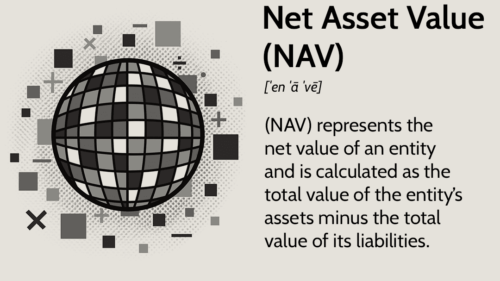Real estate investing can be daunting, dealing with property management and high initial costs. Additionally, the sky high real estate prices we are seeing throughout the U.S. have spiked fears that the real estate bubble is about to burst.
This is not necessarily great news for those with a good chunk of money in property. Fortunately, there are alternative ways to invest in real estate without breaking your back or the bank.
Is The Real Estate Bubble About to Burst?
We are floating high in a real estate bubble as home prices continue to soar rapidly. This bubble is caused by an increase in demand for housing and a limited supply to choose from. The result is homes being bought and sold for amounts significantly higher than the property is worth.

The United States last saw such a bubble from 2005 to 2008 before a series of delinquent mortgages caused the whole thing to burst. Fannie Mae estimates home prices will continue to rise 10.8% in 2022.
This is a decrease from the 18.8% rise in 2021. Without the indicators we saw before the crash of 2008, there’s no sign that today’s real estate bubble will burst any time soon.
5 Alternative Ways To Invest In Real Estate
Real Estate Crowdfunding
As the name implies, real estate crowdfunding platforms allow you to pool money together with multiple investors to acquire physical property.
While not owning real estate on your own, investments may include residential real estate in rental properties or house flipping. There’s also the option to purchase commercial properties for long-term rental income.
Depending on how you buy into this space, you may walk away with a single location or several investment properties. In many cases, these real estate locations generate passive income without the need to spend any time on site.

Because you’re partnering with several other real estate investors while crowdfunding, it’s possible to start out with significantly less money than buying a property outright.
Online real estate platforms have differing requirements for their investment properties, and some may only be available to an accredited investor. Even if you invest in real estate through a platform, take the time to vet each property to ensure it’s a worthwhile opportunity.
Invest In REITs
Real estate investment trusts, also known as REITs, offer a diversified portfolio of properties through investments in particular stocks. These companies mainly pursue commercial real estate but may also purchase large-scale residential properties. Being stocks, REITs trade openly on major exchanges.
To keep its status as a REIT, companies must pay at least 90% of profits back to shareholders as dividends. As a result, it’s possible to earn income from increases in share price along with passive income on a monthly or quarterly basis.

Using REITs can be an excellent way for a real estate investor to dabble in properties without having to deal with actual ownership. Furthermore, real estate investment trusts often represent hundreds if not thousands of properties to provide some much-needed diversification.
To go one step further, investors can diversify a real estate portfolio by buying shares of a REIT exchange-traded fund. These funds house dozens or hundreds of REIT companies.
Invest in Real Estate Mutual Funds
Individuals looking for extra stability in real estate investing may wish to turn to mutual funds. These funds represent a managed list of investments encompassing stocks and bonds purchased at the net asset value (NAV) set by the U.S. Securities and Exchange Commission (SEC).
The SEC adjusts the NAV daily by analyzing the closing prices of all assets within the mutual fund. Most of the time, the purchase price sits reasonably low while offering a broader selection than a REIT alone.

Because mutual funds are carefully managed, they typically provide an analysis of each asset’s past performance and potential growth down the line. Investors may also receive research on securities the fund looks to obtain in the future.
A mutual fund can be either actively or passively managed. Passively managed funds usually have lower fees but don’t have a manager making adjustments as needed. Since they can only be traded at certain times, mutual funds are less liquid than stock market trading.
Invest In a Real Estate Focused Company
Real estate-focused companies own and manage properties but operate differently from real estate investment trusts. These businesses typically focus on a particular business model instead of a range of commercial properties.
Companies with a real estate focus include resorts, hotels, timeshares, and even specific commercial real estate developers.
A prime example is McDonald’s, a company best known for its burgers and fries. However, McDonald’s makes the lion’s share of its income by renting land to franchisees and collecting it perpetually.

According to the Wall Street Survivor, the company owns 45% of the land and 70% of the buildings containing golden arches.
When looking at this real estate investment, you are buying into more than just the investment property. It’s essential to study how the company performs, ensuring its business model can carve a clear path to success.
Invest In Real Estate Notes
Real estate notes represent monetary agreements between a borrower and a lender utilizing either real estate or a mortgage loan as collateral. These notes dictate repayment terms, including interest rates, due dates, and penalties for missed payments.
Lenders may sometimes choose to rid themselves of notes they no longer want. This gives real estate investors a chance to purchase the debt and collect interest on payments.

Although rate, investors may come upon performing notes, where the borrower is faithfully making payments. More likely, the lender is looking to jettison a non-performing note where the borrower has failed to make payments for at least 90 days. In these situations, the lender often sells the real estate note at a discount to cut their losses.
Investors who possess non-performing notes can work with the borrower to establish new terms, offering additional time to make payments in exchange for a higher interest rate. You could be stuck with property ownership if negotiations don’t work out.
Final Words: 5 Alternative Ways to Invest in Real Estate
The housing market continues to experience high prices with no end in sight. These alternative real estate methods allow investors to get involved in the space with minimal impact.
A resistance to inflation and economic downturn further make real estate investing a solid long-term strategy.
More articles that might interest you:
Arrived Homes Review: Rental Real Estate Investing Made Easy?
These Are The 10 Best Residential And Apartment REITs To Buy For Income!


 Tags:
Tags:










